SSF PROJECT
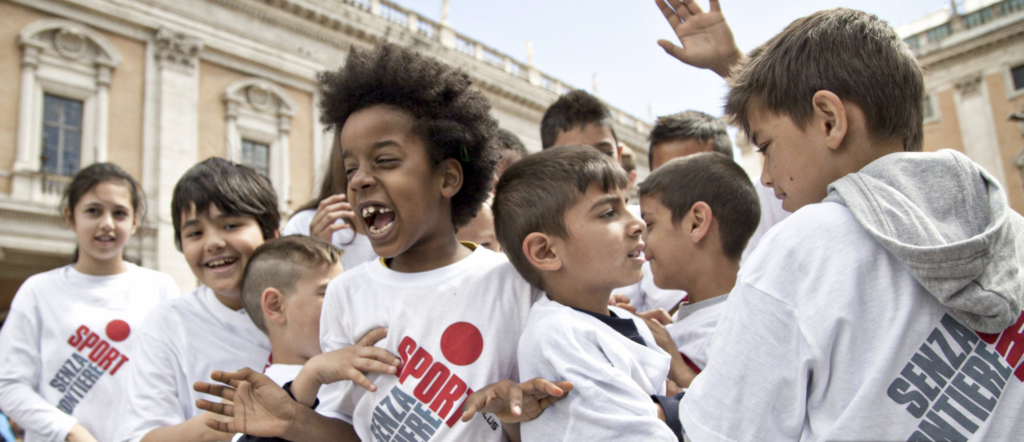
The core of Sport Senza Frontiere is a socio-educational inclusion program realized through the sport practice, addressed to minors in socio-economical needs.
The association, furthermore, grants medical visits and provides transfer services to the kids.
The program aims to the sportive inclusion of children and kids at marginalization risk, in sport courses within sport clubs of the NETWORK and to the integration into the team group. The sportive path of the minor is supported and monitored by a tutor, a psychologist and a tutor-assistant who seconds the sport trainer and provides a counseling support to the beneficiary families.
The Rome Cattolica University has developed the evaluation of psycho-social impact of Sport Senza Frontiere model thanks to the finalizing of efficiency markers able to evaluate both individual competencies of beneficiaries and the repercussion on their community.
The intervention model is centered on the construction of three networks of territorial proximity coordinated by SSF: sport-supportive network, composed by sport associations which endorse to SSF, socio-supportive network that is the Institutions which recommend to SSF the minors to take into care, health partner network that is clinics or doctor’s offices which support the healthcare monitoring program, executed with the support of the Rome University of Tor Vergata.
The sportive side is then only one of the aspects of this path which the beneficiary finds to walk once joined Sport Senza Frontiere family. All this enhances a true TAKE ON RESPONSIBILITY of the minor whom the Ngo follows along this path during the years.
HISTORY
Sport Senza Frontiere (Sport Without Borders) started its activity in 2009, with only 5 children recommended by the Community of Sant’Egidio, who were included in the Modern Pentatlhon courses of Atlhion in Rome. Nowadays this non-profit organization follows over 400 children in different Italian cities.
Sport Senza Frontiere was born from the initiative of professionals and executives coming from various backgrounds and having different skills.
The first nucleus of this project was born within the Modern Athlion Rome Pentathlon, a sports club that has been operating in the sports and educational sector for 25 years and was founded by the current president of the non-profit organization.
In December 2009 Athlion Rome Modern Pentathlon, in collaboration with Contrasto, Reuters and the Community of Sant’Egidio, organized the first fundraising event, through the organization of a photo exhibition on sports and the subsequent auction of those photos.
With the proceeds from the auction, in fact, the “Sport Without Borders Project” is launched, an initiative for social integration and the right to sport, addressed to children in disadvantaged conditions living in the northern suburbs of Rome.
From this moment on, the history of Sport Senza Frontiere begins, which in 2011 becomes a no-profit organization (ONLUS).
The fundraising event is held again in December 2010 with greater success.
With the funds raised, it has been possible giving continuity to the project and to enhance the socio-educational contribution, whose operational fulcrum is the Sports Center of the University of Rome “La Sapienza” in Viale Tor di Quinto, managed by the CUS Rome (University Sports Center).
Considering the effectiveness and the results produced by the intervention and the growing needs of the territory (schools, families, associations in the sector), on 23 May 2011 Sport Senza Frontiere Onlus becomes a no-profit organization, thanks to an initial funding received from the Vodafone Foundation, being thus able to include the first hundred children within a series of sports clubs, the first nucleus of which will later become the SOLIDARITY SPORTS NETWORK, including today over 150 sports clubs throughout Italy.
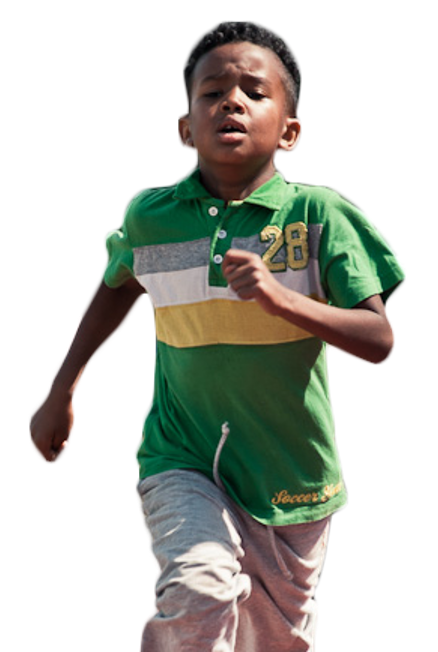
TECHINCAL SCIENTIFIC COMMITTEE
Sport Senza Frontiere makes use of a Technical Scientific Committee that contributes to the development of the intervention model, participates in research and design and contributes to the development of the strategy of the non-profit organization:
Guigo Lombardi
Technical Scientific Committee Secretary
Ersilia Buonomo
Associate Professor of Hygiene and Public Health Department of Public Health – Faculty of Medicine – University of Rome Tor Vergata.
Francesco Aureli
President, International Health Observatory Onlus (NGO)
Luisa Iavarone
Full professor at the Parthenope University of Naples – Department of Exercise and Wellness Sciences.
Massimo Coccia
Lawyer, specialized in sports law, Professor of international law at the University of Tuscia and member of the Sports Arbitration Court (Tas) of Lausanne.
Massimiliano Fiorucci
Full professor, Director of the Department of Education at the University of Roma Tre.
Giorgio Donegani
Food technologist. Advisor and Past President of Food Education Italy – Italian Foundation for Food Education. Member of the MIUR technical-scientific committee “Food and School”.
Fabio Bocci
Full Professor of Pedagogy at the Department of Education at the University of Roma Tre
Giovanni Caldarone
Sports Physician and Nutritionist former director of the Institute of Sports Science, Sports Medicine Department
Renata Pantanelli
Dr. in Kinesiology, lecturer in Rhythmic ISEF, IUSM, Faculty of Kiesiology – University of Rome “Foro Italico”
SUPPORTIVE NETWORK
One of the strengths of Sport Senza Frontiere is the Solidarity Network, made up of over 175 sports associations that welcome our children and that join the project and share its mission and objectives, by signing the Manifesto dei Valori (our funding values Manifesto).
The solidarity network translates into a varied sports offer that allows our children to be included in the most diverse activities, following their inclinations and also their proximity to the territory.
Alongside the sports network, the non-profit organization collaborates with a network of reporting bodies and medical centers for monitoring the health of children, where needed.

The list of sports clubs that have entered the solidarity network during the history of Sport Senza Frontiere is very rich
SEE THE COMPLETE LIST
It is a living list, always on the move, every day new realities ask us to collaborate, while sometimes it happens that others are part of our past.
Some associations have been our partners since we started, such as the Atlhion Roma Pentathlon Moderno. But they all shared the Manifesto dei Valori and in fact we consider them part of the great SOLIDARITY NETWORK of Sport Without Borders.
“Sports can teach values capable of transforming life”
Without their precious support, the sharing of our common goals, we wouldn’t be able to realize our project this widespread, effectively creating an innovative integration model.
CORE VALUES MANIFESTO
Sports practice can be source of a positive emotional experience on which a balanced growth, personal wellbeing and health can root.
Sport Senza Frontiere Onlus promotes and highlights openness to a civil action, promoting culture democracy and valorization of emotions through sports, for respect and passion to be propulsive elements of personal behaviors.
The expressive-creative process applied in sports practice helps to perceive and acknowledge unexplored spaces of one’s own self, letting latent resources and unexpressed potentialities emerge. Whoever cares about young people and their full realization as individuals and citizens, is expected to support them to recognize and find out inside themselves those energies and potentialities.
Sport can be great school of life as well as a key tool to face and reduce illegality, violence, abuses, isolation, disadvantage, marginalization. For this reason, now more than ever, it’s crucial to protect and promote the acknowledgement and adherence to those ethical values which are the strength of sport and establish its core meaning.
Loyalty, probity, honesty, perseverance, solidarity, need to be transferred again, not only as values but as tools, to support a straight and constructive existence and civil coexistence.
Given that sport is a valid instrument of social and psychophysical disadvantage prevention and of personal training, they must be considered a right for all kids and teenagers, and access to sports activity must be granted, specially to the weakest brackets, thus at highest marginalization risk.
Furthermore, helping young people to experience that life can be surprisingly rewarding is not a lie… it rather means instilling optimism, it’s a valid means to strengthen self-confidence.
Enabling people to nourish a hope, to nurture demanding and founding dreams, stretching towards broad horizons is an investment over the future of a better society. And we, the people of Sport Senza Frontiere, believe in that.
RESEARCH PROJECTS
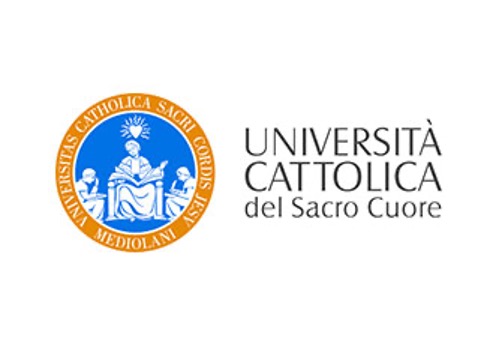
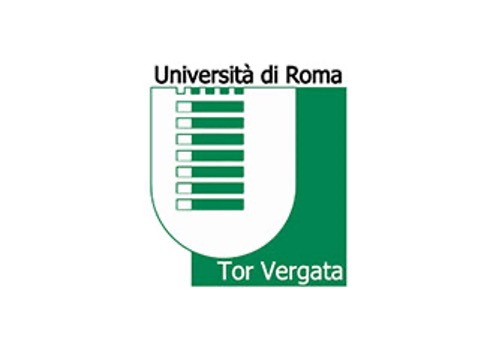
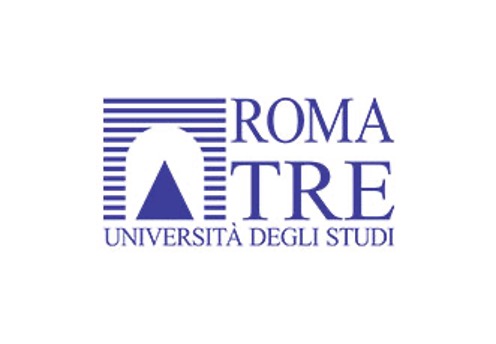
Sport Senza Frontiere has started cooperation and research projects with the Italian University:
Roma Tre University of Rome – Department of Education Sciences.
Thanks to the cooperation agreement with the research laboratory for scholar and social inclusion development coordinated by Prof. Fabio Bocci, previously member of the Scientific – Technical Committee of the Ngo, we carry out a qualitative and exploratory research aimed to detecting the change perceived by beneficiaries thanks to sport activities channeled by SSF.
With the Cattolica University of Milan – High School of Psychology Department coordinated by Prof. Caterina Gozzoli, we are carrying out a research aimed to exploring the impact of Sport Senza Frontiere project, in terms of individual competencies acquired by beneficiaries as well as to exploring which processual aspects of this project foster the success of the educational and inclusive path.
Thanks to the cooperation with Tor Vergata University of Rome – Faculty of Medicine and Surgery, Bio-medicine and Prevention Department, a protocol has been processed in relation to sanitary screening of kids involved in Sport Senza Frontiere programs, under the name of FORGOOD project. Sport and related wellbeing have been analyzed in Tor Vergata University – by Prof. Ersilia Buonomo, by the mean of the outcome of medical visits made to kids involved in sport activities, and this allowed us to describe, evaluate and monitor in the time social-demographic characteristics of kids in Naples, Rome, Milan and Buenos Aires, their health conditions, their suitability to sport activities and their nutrition habits and foods preferences. The first data of this project (still in the process of being evaluated) have been presented in a convention held in Rome: Sport as a contrast to infantile poverty.
Those studies have been published by the international magazine International Journal of Food Sciences and Nutrition.


